Every parent wants their children to be successful. So, here are 10 attributes of parents of successful kids, according to science that can be a guide for you to brush up on your parenting skills!
Every parent wants their kid to grow up to become a successful adult. Most of the parents are not equipped with the right parenting tools that will ensure the same. This post gives you insights into what parents of successful kids do. If you are looking for some guidance on how to raise your kids into successful, healthy and happy adults, read on.
According to research and psychology, the parents of successful kids have these 10 traits in common.
10 Things Parents Of Successful Kids Did Differently
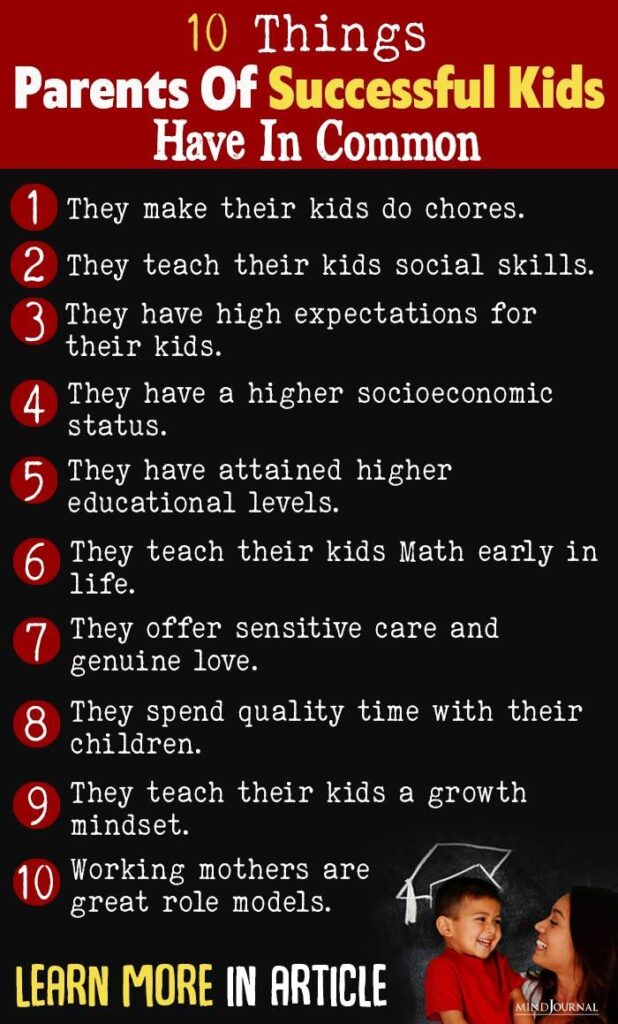
1. They make the kids do their own chores
Julie Lythcott-Haims, author of “How to Raise an Adult”, mentioned in a TED talk,
“If kids aren’t doing the dishes, it means someone else is doing that for them, and so they’re absolved of not only the work, but of learning that work has to be done and that each one of us must contribute for the betterment of the whole.”
When kids learn that they have to do their chores by themselves during their developmental phase they grow up to be adults who are well aware of their responsibility of carrying their own weight and also contributing to the society.
Such kids also grow up to be better employees who know that they have to collaborate with their colle
Related: The Lifelong Effects of Childhood Neglect By Parents
2. They teach their kids social and emotional skills
In research conducted by Pennsylvania State University and Duke University, more than 700 children across the US between the age of kindergarten and age 25 were tracked for a correlation between social skills as a kindergartner and their success as adults decades later.
The 20-year long study proved that kids who were taught social and emotional skills during childhood were far more likely to earn a college degree and get a full-time job by age of 25 as compared to those who with limited social skills. This study shows that helping children develop social and emotional skills is one of the most important things we can do to prepare them for a better future.
From an early age, these skills can determine whether a child goes to college or prison and whether they end up employed or addicted. – Kristin Schubert, Program Director, Robert Wood Johnson Foundation.
3. They have high expectations of their kids
According to research, lead by Professor Neal Halfon, University of California, the expectations that parents have of their kids plays a huge role in their success.
In the study, around 6600 kids were surveyed on their test scores. It was found out that 97% of the kids who did well were expected to go to college by their parents while 57% of the kids who did worst were expected to go the college by their parents.
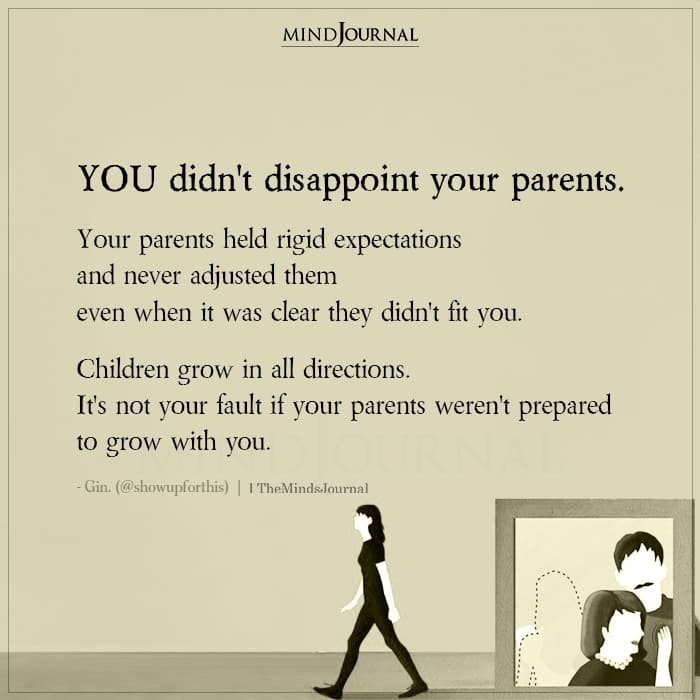
The result is also in line with Pygmalion effect, which mentions “that what one person expects of another can come to serve as a self-fulfilling prophecy.” So these parents who expect their kids to perform at per their excellence will help foster a successful individual in the future years to come.
Related: 4 Reasons New Parents Struggle and How to Overcome Them
4. They belong to a higher socioeconomic status
According to Sean Reardon, an American researcher from Standard University, “the achievement gap between high and low-income families has been getting wider”, “roughly 30 % to 40% larger among children born in 2001 than among those born 25 years earlier.”
It is an unavoidable fact that kids from lower-income families often struggle to obtain higher education as their parents are mostly struggling to make their ends meet and don’t have enough funds to invest in their kid’s education.
As also stated by Dan Pink, in his, motivational bestseller “Drive”, “Absent comprehensive and expensive interventions, socioeconomic status is what drives much of educational attainment and performance.”
5. They have higher education levels
According to a study conducted by Green State University in 2009, parents who completed higher education or college were more likely to have children who followed their path.
Dr Eric Dubow, lead researcher from the study found out that the parent’s education level when the kid is 8 years old is an important indicator of kid’s educational and occupational success for the child, 40 years later.
Related: The 4 Common Parenting Styles And Their Effects On Kids
6. They teach their kids Maths early on in life
According to a study conducted by Northwestern University in 2007, of around 35000 kids across U.S., Canada and England, development of math skills early in life can be a huge determinant of kid’s success in future.
The paramount importance of early math skills — of beginning school with a knowledge of numbers, number order, and other rudimentary math concepts — is one of the puzzles coming out of the study, said author Greg Duncan, “Mastery of early math skills predicts not only future math achievement, but it also predicts future reading achievement.
Therefore, it is crucial to ensure that the kid gets the needed education in Maths especially in the early stages of development.
7. They offer sensitive care & genuine love
When a kid is born, they have no individual sense of identity. Their identity is totally enmeshed with their primary caregivers. It is around 2 to 3 years of age, that a kid starts developing an ego or individual sense of identity.
The quality of the love & care that a kid gets at this time plays a crucial role in determining the self-esteem and self-worth of a child that he will carry along throughout his life.
Parents of successful kids give consistent love and care during theie developmental stage, so their kids grows up with a solid sense of self, free from the fear of abandonment, believing that this world is a safe space and he/she can get what he/she wants.
Loved children also enter adulthood with a deep internal sense of security, free from the fear of abandonment. With this internal sense of the consistent safety of the world, such a child is free to delay gratification of one kind or another, secure in the knowledge that the opportunity for gratification, like home and parents, is always there, available when needed.– M.Scott Peck, Road Less Travelled
Related: 10 Reasons Why Stay-At-Home Moms Have The Most Stressful Jobs
8. They spend quality time with their kids
It is about the quality of time that parents spend with their kids and not the quantity of time.
Emotions and energies are contagious. If kids grow up in a home environment which has negative energy and are exposed to constant conflicts and anger outbursts, it can have a very negative effect on the kid’s mental makeup and psyche. The emotional state of parents could easily transfer to the kids.
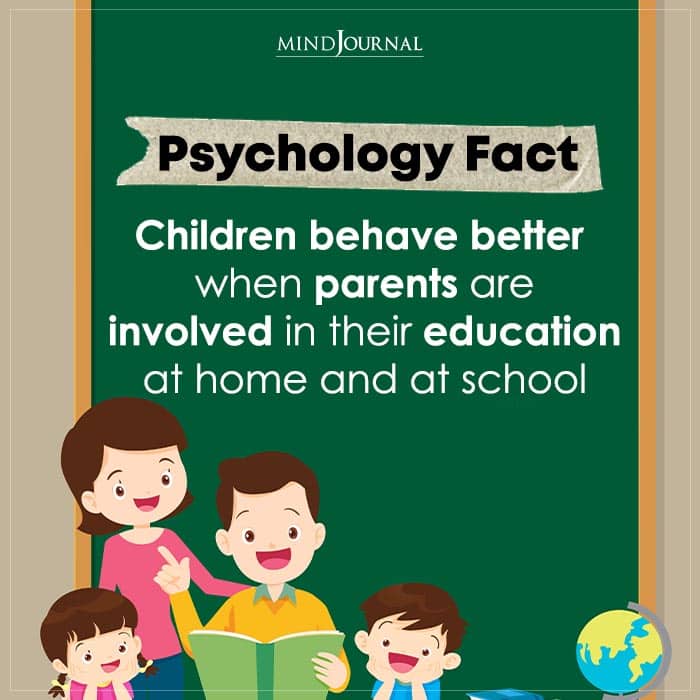
When the mothers are stressed because they are unable to maintain the work-life balance and trying to find time with kids, that may actually be affecting their kids poorly. Parents of successful kids try to maintain the low-stress level and positive home environment.
Negative home environment can cause the kids to be stressed out as well, explains sociologist Kei Nomaguchi.
Related: 9 Reasons Why Parents Should Be Transparent to Their Kid
9. They teach their kids a growth mindset
According to researcher Carol Dweck, there are two kinds of mindsets: the fixed mindset and a growth mindset.
People with a fixed mindset, believe that their talents and qualities are fixed traits and cannot be modified. These people spend their time in documenting their talents or intelligence rather than working to develop or enhance them. They also have a notion that talent alone can lead to success and effort is not required.
On the other hand, people with a growth mindset, believe that their skills and talents are not fixed and can be developed over time. When people believe that they can grow and get better, they realize they can get success by putting in more efforts.
So, they do not just rely on their talents to bring them success, but they go the extra mile and put in the time and effort to get successful.
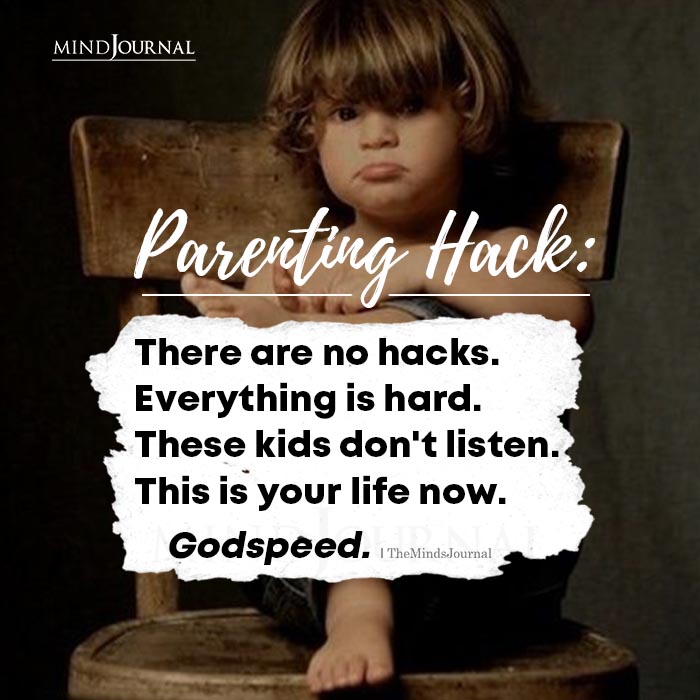
How parents react to their kid’s success in their early years can have an effect on which mindset the kid will develop. If they attribute their kids’ success to merely his talents and abilities and praise him for having those attributes, instead of praising them for the hard work or effort they have put in, it will make the kid develop a fixed mindset.
On the other hand, if the parents attribute their kid’s success to the hard work and effort they put in, instead of just praising them for their skills, will inculcate a growth mindset in their kids’ mind.
Such kids will grow up to be confident to face challenges and go the extra mile to become successful, instead of becoming complacent and stuck in their life. In short, parents of successful kids value effort over avoiding failure.
10. Working mothers are great role models
Working mums seem to have a significant impact on child growth and development irrespective of gender. According to a study, daughters of a working mother went to school longer, gain better job profiles and earned more money – 23% more compared to their peers who were raised by stay-at-home mothers.
Likewise, sone of working mothers were found to be active in household actvities and childcare – they spent seven-and-a-half more hours a week on childcare and 25 more minutes on housework.
Research suggests that such role modeling by working mothers is a brilliant way of signaling what’s appropriate in terms of your behaviour, actions, activities you indulge in, and your belief system.
The most important role that you play in a child’s life is to be a loving coach who creates the conditions that are conducive to helping your child nurture their highest potentials.
Think and treat them as a unique human being separate from you. Watch and observe and introduce them to various learning opportunities so that they can pick up for themselves, what they want to do with their lives, instead of viewing them as a portal to fulfill your own unfulfilled dreams or hopes.
Related: How Children Of Obsessed Parents End Up Feeling Lost and Empty
As Kahlil Gibran, also mentioned in his famous classic, “The Prophet” on parenting:
“Your children are not your children.
They are the sons and daughters of Life’s longing for itself.
They come through you but not from you,
And though they are with you yet they belong not to you.
You may give them your love but not your thoughts,
For they have their own thoughts.
You may house their bodies but not their souls,
For their souls dwell in the house of tomorrow,
which you cannot visit, not even in your dreams.
You may strive to be like them,
but seek not to make them like you.
For life goes not backward nor tarries with yesterday.
You are the bows from which your children
as living arrows are sent forth.
The archer sees the mark upon the path of the infinite,
and He bends you with His might
that His arrows may go swift and far.
Let your bending in the archer’s hand be for gladness;
For even as He loves the arrow that flies,
so He loves also the bow that is stable.”
If you’re wondering what parents of successful kids do, take a look at this video that talks about the attributes of parents of successful kids:
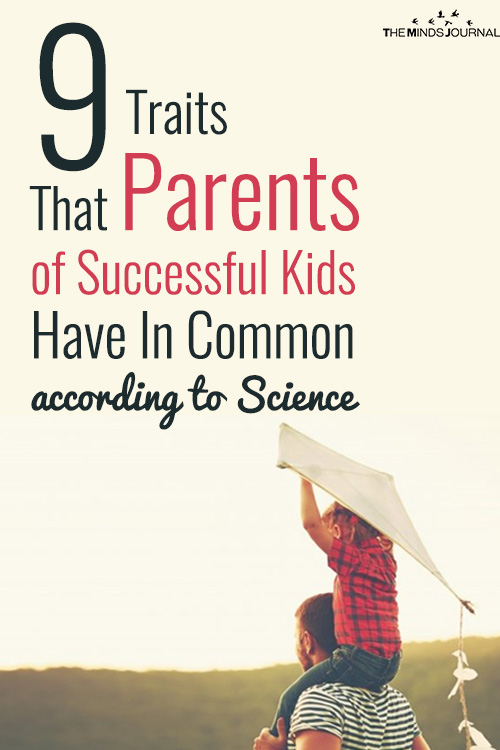
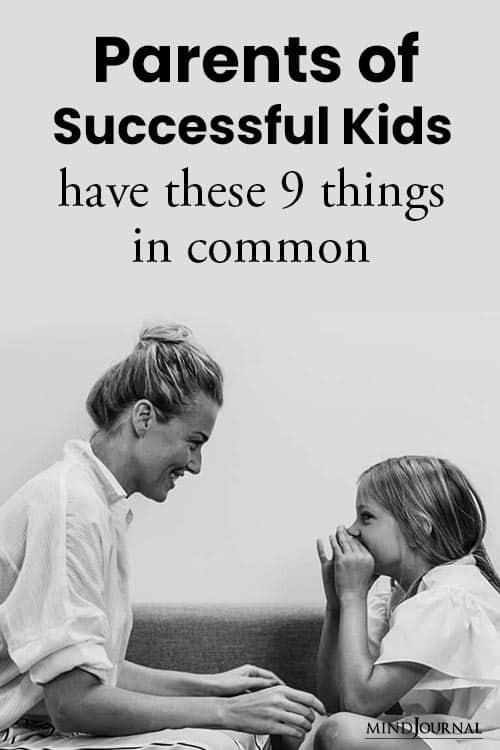
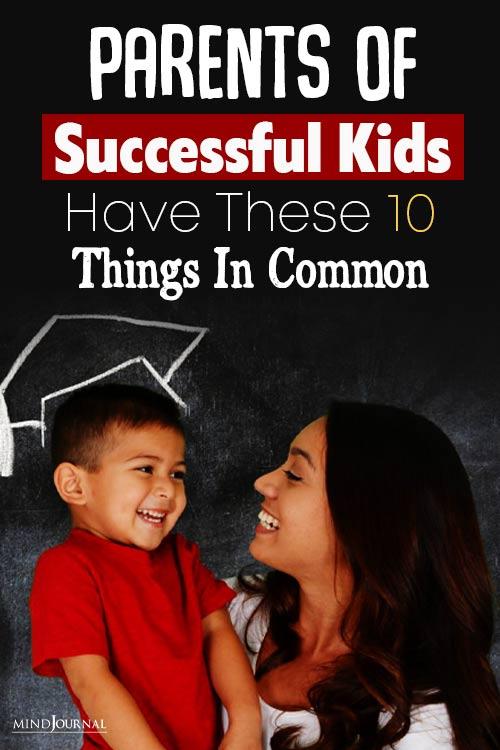

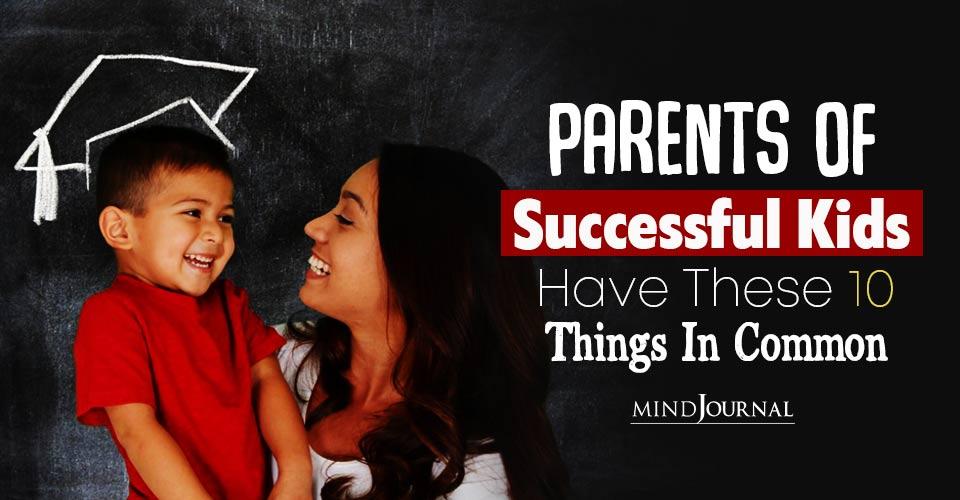







Leave a Reply